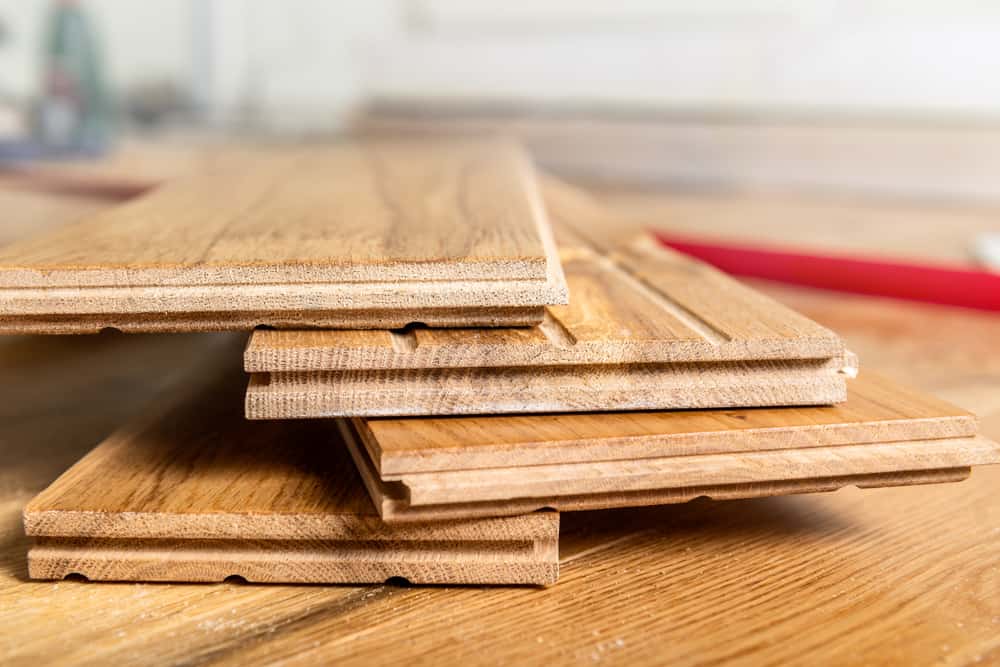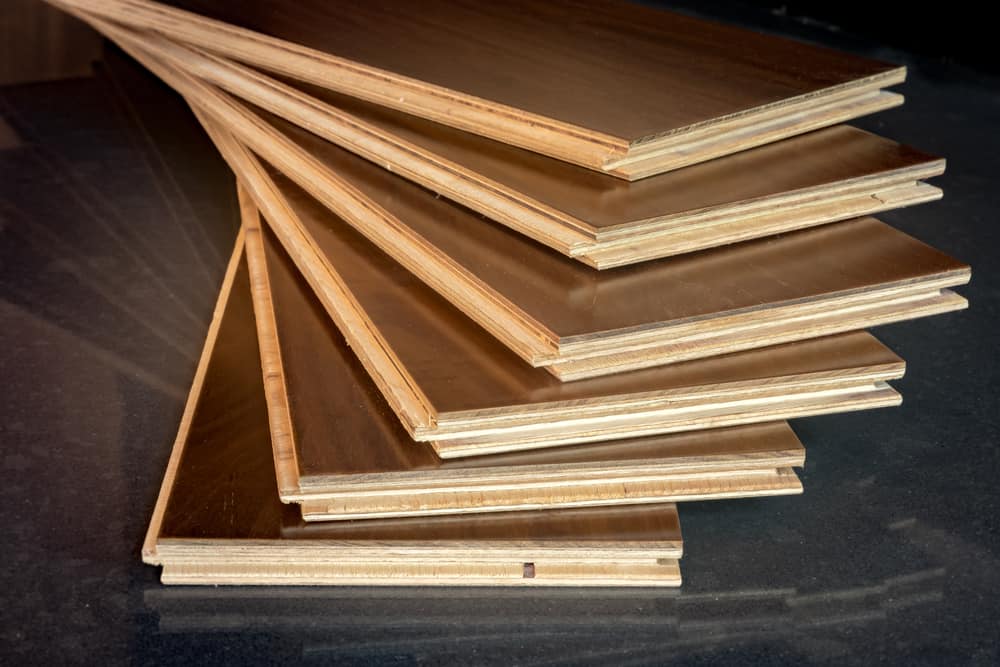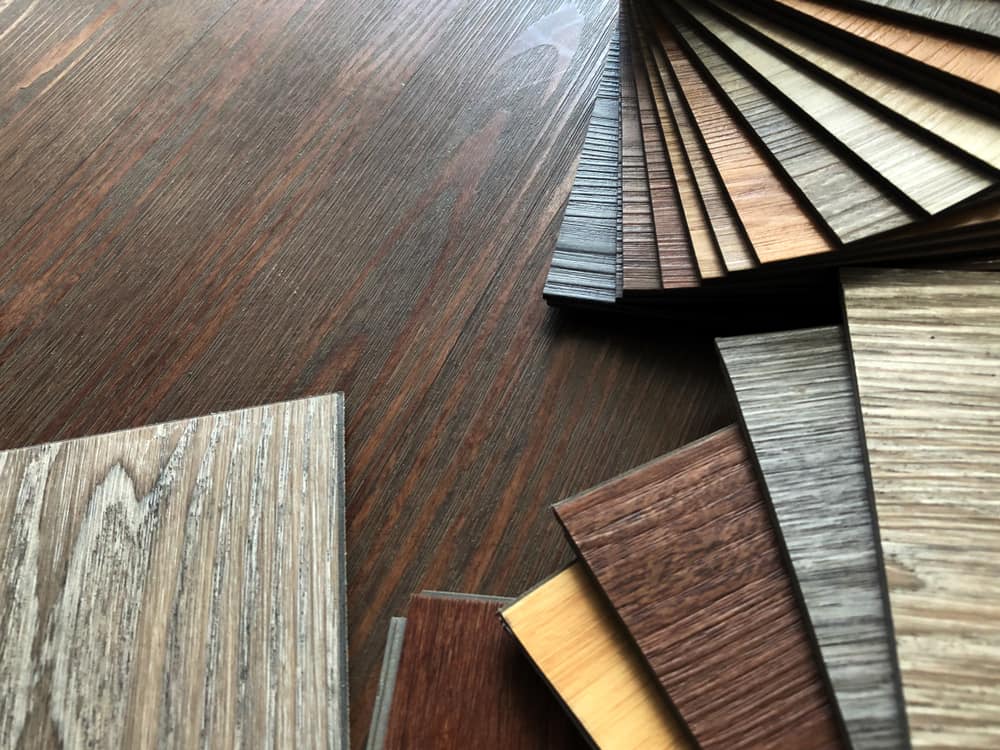If you choose to make your floor look like wood, you’re likely to ask yourself the most challenging question. Expect it to be; which one is better between solid hardwood, engineered hardwood, and luxury vinyl floors?
Well, you are at the right place to get your answers. Here we’ll explore more about solid hardwood Vs. Engineered hardwood vs. luxury vinyl flooring.
These floors have excellent specs and come in many collections. It will be more exciting if you choose one that will suit the needs of your project. So, get ready as we start with the meaning of these floors.
Table of Contents
What are Solid Hardwood Floors?

Like the name itself, a solid hardwood comes from a board of one solid wood. If it’s maple, you’ll get one board of maple style.
People see it as the gold of hardwood floors. Remember, the firms make them with a pure and refined grain to make them beautiful.
These styles of solid hardwood never go out of fashion. If you need to refresh it, you’ll need fewer efforts.
Remember, no solid hardwood floor can float on the sub-floor. You’ll need nails or glue.
What are Engineered Hardwood floors?
These floors are pretty unique. Expect them to have 5 to 7 layers of plywood.
All come from hardwood trees. Also, the floors come from trees that grow slowly. It’s what makes the planks strong.
Engineered hardwood floors have excellent specs and are durable. But they are less stable than the solid hardwood floors.
There is a covering (veneer) on top of these floors. This spec makes them durable.
What are LVPs?
It’s simple. LVP are planks that look like solid and engineered hardwood floors. These pieces come from vinyl material and are not 100% wood.
Expect them to look very similar to a real thing or the name of the style. LVP has other names. You can call them engineered vinyl flooring or resilient-vinyl planks.
Also, LVP has four layers. All have wear, image, and core layers. Some have an attached pad.
Solid Hardwood vs. Engineered Hardwood vs. Luxury Vinyl Flooring

These floors have beautiful specs. Expect to see similar specs in solid and engineered hardwood but not with the LVPs. So, read on to see the specs of each floor.
1. Styles and Colors
Here are the styles and colors of these three floors. We’ll start with the engineered hardwood floors.
Engineered Hardwood Floors
Many firms make these hardwood floors in different styles and colors. Since these planks come from trees, expect them to have the names of many trees.
So, you’ll get styles with names like oak, hickory, mahogany, maple, and many other hardwood trees. Also, these styles come with different finishes. They include matte, high, and semi-gloss.
Remember, you can get both old and classic looks under engineered hardwood floors. They will make your home beautiful.
Solid Hardwood Floors
There are many styles of solid hardwood floors in the market. So, you’ll get them in select, number 1 common, and number 2 common. All bear the name of trees.
The select grade is the best. Also, the floors have a uniform color, tone, and length. They are costly but beautiful.
Number 1 common class solid hardwood aren’t that perfect. They have knots, different colors, and variations that are easy to pick.
If you choose the number 2 common grade, the boards are rustic and less perfect. It’s because the knots are larger, and colors do vary. Also, they are in many lengths.
LVP Floors
Yes, indeed, LVP floors wouldn’t be the best option for hardwood floors if they looked fake. So, expect them to look natural.
They can look like wood or stone. But how is it possible?
Well, most LVP firms make the floors using embossing tech. They make molds from natural stone or wood. Also, they make the image layer from here, and the floors take the same look and texture, but lengths vary.
The LVP colors are weathered, grey, white, light, and dark brown. Also, there are stone and concrete styles.
2. Durability and Stability

You can measure the durability based on the type of wood, thickness, and type of top layer. So, read on to see the qualities of each floor.
Solid Hardwood
These floors are hard enough to withstand any damage. It’s harder than the engineered hardwood floors. But it will depend on the type of hardwood you choose.
Expect some styles like oak to be more durable than the rest. Though people say that solid hardwood floors can wear faster, they can still handle any traffic size.
Yes, they are stable, but not on every sub-floor. You can’t place them on water areas or places with extreme temperature changes. If you also put them in water areas, it will discolor them and even allow the growth of molds on them.
But if you’d want them on water areas, you’ll need a water vapor screen. Place the screen under the floor to prevent any moisture from reaching the boards.
Engineered Hardwood
Yes, these hardwood floors are hard enough. If the top layer is thick enough, you can sand and refinish it many times.
The thickness of these floors makes them stand out. Also, if the boards get old, you can sand and refurbish them.
Engineered hardwood floors have a long-term finish. It makes them withstand cases of scratches and dents.
Firms arrange these planks in a safe pattern. So, it allows them not to down or warp. It means that any changes in temperature or moisture can’t affect them.
Expect them to last longer than solid hardwood floors. Also, with this stability spec, you can use these hardwood floors even in water areas. It means that they are waterproof.
LVP Floors
Most LVP floors are much more durable and stable than hardwood floors. The four layers make them stronger and for a long time.
The thickness of wear layers ranges from 6 to 22-mil. Remember, the thicker the wear layer, the stronger the LVP. Also, the quality of a wear layer will depend on the maker of the LVP.
Many LVPs have a solid core to make them more durable and even waterproof. There is the wood polymer core (WPC) and stone polymer core (SPC).
WPC is thicker and soft to your feet. You can use them at home.
SPC is more rigid and thinner. They can resist scratches and dents but won’t be soft to your feet. It’s suitable for commercial places.
Some have a pad. It helps reduce noise and moisture effects. If you buy one without the pad, you’ll need to get an underlayment before installation.
Also, some LVP collections have an extra layer that can resist the effect of UV light. Say bye to a fading floor. So, you can use them in places that get sunlight, like a verandah.
3. The Green Care
These three floors won’t bring harmful effects to the air quality of your house. Take a look at how each floor cares for your environment.
Solid Hardwood and Engineered Hardwood
It’s common for every hardwood floor to improve the air quality of the house. So, if you have anyone with a health issue at home, be sure that these floors won’t affect them.
Also, to ensure the safety of these hardwood floors, expect them to have the FloorScore pass.
But wait, here’s the catch. On both types of hardwood floors, check for FSC pass. It will show that the firm legally cuts the rare types of hardwood trees to make the floors.
LVP Floors
Most LVP floors come from chemicals things. These materials are part of the WPC and SPC layers.
Some of them have high levels of VOCs, while others have low levels. So, if they are high, it means your health and that of your family will be at risk. Before you buy, check out for the genuine FloorScore or GreenGuard Gold pass.
Unlike the hardwood floors, most LVPs don’t promote cutting down trees. The molds of the trees make the styles of the LVPs and not the whole tree. So, in terms of being eco-friendly, LVP floors are better.
4. Costs
Expect the engineered and solid hardwood floors to be more costly than LVPs. It’s because of the styles and finishing that firms give these floors.
Solid hardwoods are the most expensive, and then engineered hardwood will come in second. Then LVPs are the cheapest among the three.
But these prices won’t be the same for every collection. Also, there can be extra costs like installation, which can make the final price high. Here is the info on the costs of each floor.
| Floor | Price Per Square Meter |
| Solid Hardwood | $5-$13 |
| Engineered Hardwood | $6-$12 |
| LVPs | $2-$9 |
Conclusion
These three floors will add a taste to the beauty of your house. The differences between the two floors mainly come from their body.
LVPs can last longer. But solid and engineered hardwood floors will improve the air quality of your house. Also, the floors will last longer.
But if you live in areas with different weather changes, the engineered hardwood floors and LVPs will be better. Lesser damage can occur.
So, which one is the better choice of floor for you between the three? Do you have any more questions or thoughts about solid, engineered hardwood and LVPs? Please let us know.